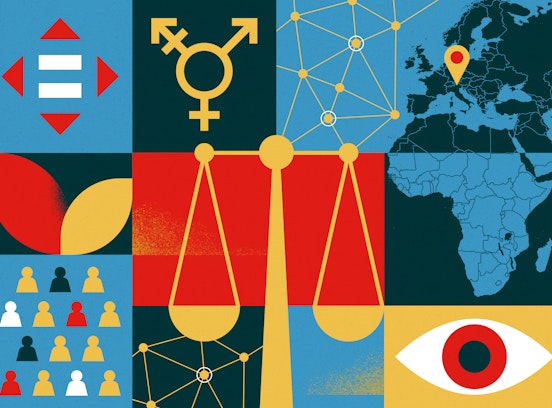Center for Advanced Studies - News & Events - Transformation without participation will be difficult
Transformation without participation will be difficult
Global Mountain Sustainability Forum and "Sextner Kamingespräche - Sesto fireside talks" focus on participation as the key to sustainable life and economy in mountain regions
In order to advance a sustainable transformation of our modern society, the participation of citizens is central. But what do suitable participatory methods for the design of living space look like? How can people be sensitised and involved? To get to the bottom of these questions, Eurac Research, the United Nations University (UNU), the Sexten Tourism Association and Sexten Kultur invited researchers, tourism operators, decision-makers and interested parties to the "Sextner Kamingespräche - Sesto fireside talks" as part of the Global Mountain Sustainability Forum.
There is a good chance that a person has hardly ever been involved in a participatory process in 25 years of life. Our schools, universities, family structures and our society as a whole are too entrenched in old hierarchical patterns for that. No wonder, then, that participation cannot work overnight but, like any other cultural technique, must first be learned - by applying it - and often. Especially in children's and youth work, the experience of self-efficacy, the belief in self-efficacy is crucial, Jörg Sommer emphasised. He is the founding director of the Berlin Institute for Participation and knows the weak points of our democracy, in which people feel less and less effective. In his impulse lecture on the occasion of the sixth edition of the "Sextner Kamingespräche", he guided the participants in the House of Sesto in half an hour through content that would otherwise have been intended for a 4-year Master's degree. An ideal basis for the subsequent panel discussion, which was led by Harald Pechlaner, Head of the Center for Advanced Studies of Eurac Research. "Participation touches all areas of life: Economy, politics, society, education, science and church. Those who make the mistake of only informing people instead of involving them already in the idea generation process will be confronted with participation in another way: namely through protest or unexpected citizens' initiatives," Pechlaner emphasised in his introductory remarks. Josef Margreiter, Managing Director of Lebensraum Tirol Holding, highlighted that, especially with regard to tourism, the time of valley and village emperors is over and a development from tourism to habitat associations is absolutely necessary. It was important to recognise what previous generations had achieved. However, the young generation now has completely different goals and must be able to develop accordingly.
Participation enables resilience, stability and transformation
One should not assume that participation is painless, Sommer stressed: "Participation cannot always solve conflicts, but it can make them visible and manageable. Participation thus enables two things: stability and transformation. Many problems are only solved in conflict with each other." At the same time, participation strengthens the resilience of a society, a quality that is more important than ever in the current crisis situation.
However, getting participatory processes off the ground certainly requires a precise analysis of the target group, as Petra Wolffhardt, product and service developer at Raum|Schmiede Lienz pointed out. One should not be surprised if hardly any women and mothers are present at an information event if it is planned as an evening format. Other times and childcare at the event itself could make a decisive difference. Thomas Bausch, Director of the Competence Centre for Tourism and Mobility at the Free University of Bozen/Bolzano, also underlined that it is important to carefully consider where the boundaries lie, how information should be provided and how the process structure should be designed in advance of a participatory project.
Clear communication and swift implementation
Children's and youth work in South Tyrol has hardly any problems getting the target group to participate. "There is no topic too difficult for children and young people not to be trusted with - be it the planning of a playground or the community development plan," said Tanja Rainer, Chair of the South Tyrolean Youth Ring. Children and young people are the future, but they already need a voice in the present. There is no danger of being confronted with an unfulfillable wish list if the framework conditions, such as financial possibilities, are precisely communicated. The need for clear communication strategies and timely implementation following participatory processes was emphasised by all participants in the discussion.
The "Sextner Kamingespräche - Sesto fireside talks" took place embedded in a larger scientific conference, namely the Global Mountain Sustainability Forum, which was organised for the second time. The Global Mountain Sustainability Forum was organised by the Center for Advanced Studies of Eurac Research, the Center for Global Mountain Safeguard Research - GLOMOS, the United Nations University (UNU), the Sexten Tourism Association and Sexten Kultur. The greetings at the "Sextner Kamingespräche - Sesto fireside talks" were delivered by Christoph Rainer, President of the Sesto Culture Association.
The Global Mountain Sustainability Forum
Exploring sustainable and resilient human-mountain relations is the focus of the second edition of the „Global Mountain Sustainability Forum“. The main focus of the scientific conference is on the current societal and ecological challenges and offers researchers, tourism operators and decision-makers from mountain regions worldwide a platform for discussion. At the same time, it aims to show what we can learn from mountain regions and mountain communities in terms of a sustainable transformation of our modern society. While the conference focused on the current state of science on the topic, the public evening event with the "Sextner Kamingespräche - Sesto fireside talks" brought together people from the most diverse areas of practice to look for strategies to make life in mountain regions even more sustainable through participation and involvement.










